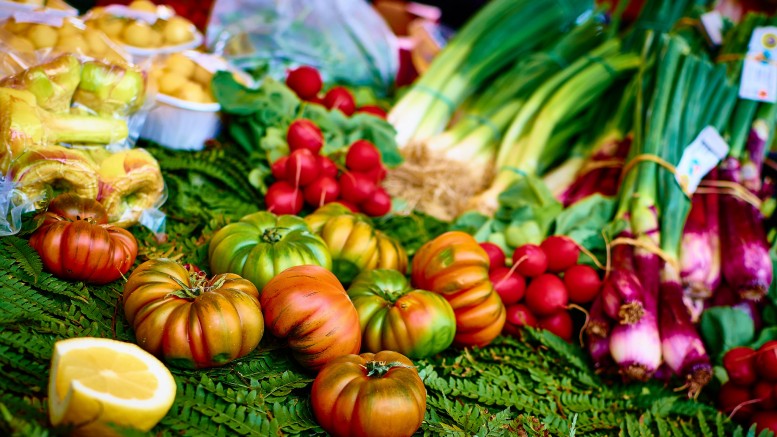Anti-inflammatory diets have become all the rage in recent years, thanks mostly to studies that have linked chronic inflammation to illnesses as diverse and life-threatening as diabetes, cancer, heart disease, and even Alzheimer’s. The result has been a wave of books and media reports all touting the benefits of a diet that keeps inflammation at bay.
The fact of the matter is inflammation is a very natural and necessary bodily function. Inflammation is simply a byproduct of our immune system doing what it’s supposed to do—fighting bacteria, viruses, and anything else that may be causing our bodies harm. In other words, inflammation is essential and we certainly don’t want to rid our bodies of their natural inflammatory response.
Inflammation becomes a problem when it becomes chronic and is no longer a response to invading particles in the body, such as disease-causing bacteria, but due to lifestyle and dietary choices that trigger the inflammatory response and consistently elevate levels of inflammation in the body. Most often, it’s our poor food choices that do this.
The good news is you don’t need to completely overhaul your diet in order to prevent or reduce chronic inflammation. It can be easy with just a few simple changes in your diet and you don’t need to go searching for exotic or expensive ingredients. Let’s take a look at eight changes you can make today.
Cut Out Refined Carbohydrates
You’ve probably heard about refined carbohydrates and their impact on human health, but many are still unaware of what ‘refined carb’ actually means. Simply put, refined carbohydrates are carbs that have been processed, typically in a factory, and as a result, have had many of their essential minerals and vitamins removed.
Refined carbs such as white bread, especially in large amounts, are well-known for promoting inflammation, particularly in the gut. It’s best to limit your overall intake of carbs and opt for unprocessed, natural carbs like whole grains, legumes, and uncooked vegetables when you need that extra, carb-fuelled boost of energy.
No More Sugary Soda
While you can still indulge in the occasional bowl of non-whole grain pasta or enjoy a steak on a night out, completely cutting out sugary drinks like sodas and caffeinated energy drinks is one of the most critical choices you could make to improve your health overall—and we’re not just talking about reducing inflammation.
Drinks packed with sugar are one of the leading causes of obesity in many countries and ultimately, they offer no benefit whatsoever from a nutritional point of view. Meanwhile, human studies have shown a link between increased sugar consumption and higher inflammatory markers and sodas and energy drinks have become the primary way most people get their sugar fix.
Limit Red Meat Consumption
You don’t have to go vegetarian or vegan to live a life free of chronic inflammation, but it’s a smart move to limit consumption of red meat, which was shown in a Harvard study involving 46,500 participants to be linked to inflammation in the gut and the development of conditions such as diverticulitis.
The study involved participants who ate high amounts of red meat daily and whose risk for higher levels of bodily inflammation increased 18% as a result of their meat-heavy diet. That’s an increased risk of 18% for each daily serving! For those of us on a diet rich in protein, opt for fish or poultry, which will lower your inflammation risk by 20%.
Get Some Greens
The same way sugar and sugary drinks are linked to a whole host of debilitating and potentially fatal conditions, high consumption of green leafy vegetables, such as kale and spinach, is one of the cornerstones of a healthy diet. If your plate isn’t looking very green, consider adding some sautéed spinach or a kale salad on the side.
Leafy greens are high in natural antioxidants and polyphenols. Antioxidants and polyphenols are compounds that prevent the oxidation of molecules in the body, effectively protecting your tissues against oxidative stress and the conditions associated with it, including chronic inflammation and cancer.
Supplement with Tumeric
Turmeric and its primary active component, curcumin, have been at the forefront of anti-inflammatory supplementation for a while now and with good reason. The list of benefits associated with curcumin (not to be confused with cumin the spice) seems to go on and on, from helping to reduce the pain of arthritis and IBS, to reducing blood sugar and protecting against some cancers.
There are now numerous studies which illustrate the antioxidant and anti-inflammatory properties of curcumin and best of all, it’s very easy to supplement curcumin in your diet and daily routine. You can add turmeric to your next recipe for an extra touch of spice or even take isolated curcumin in capsule form.
Switch to Olive Oil
A lot of our food these days is cooked using vegetable and canola oil or butter and lard, which is far from ideal for anyone looking to keep inflammatory markers in check. The next time you’re cooking, opt for extra virgin olive oil, which contains more than 36 phenolic compounds, including oleocanthal, which has powerful anti-inflammatory properties.
Olive oil is easy to incorporate into your diet. Simply swap your vegetable and canola cooking oils for extra virgin olive oil, sprinkle some olive oil on your salad (don’t forget to pack it with leafy greens), drizzle it overcooked vegetables, and use it in your next marinade or sauce.
Author: Ashleigh Blode
Bio: Ashleigh Blode is a marketing assistant for Vital Chi Wellness, a natural health and naturopathy clinic based in Melbourne, Australia.
